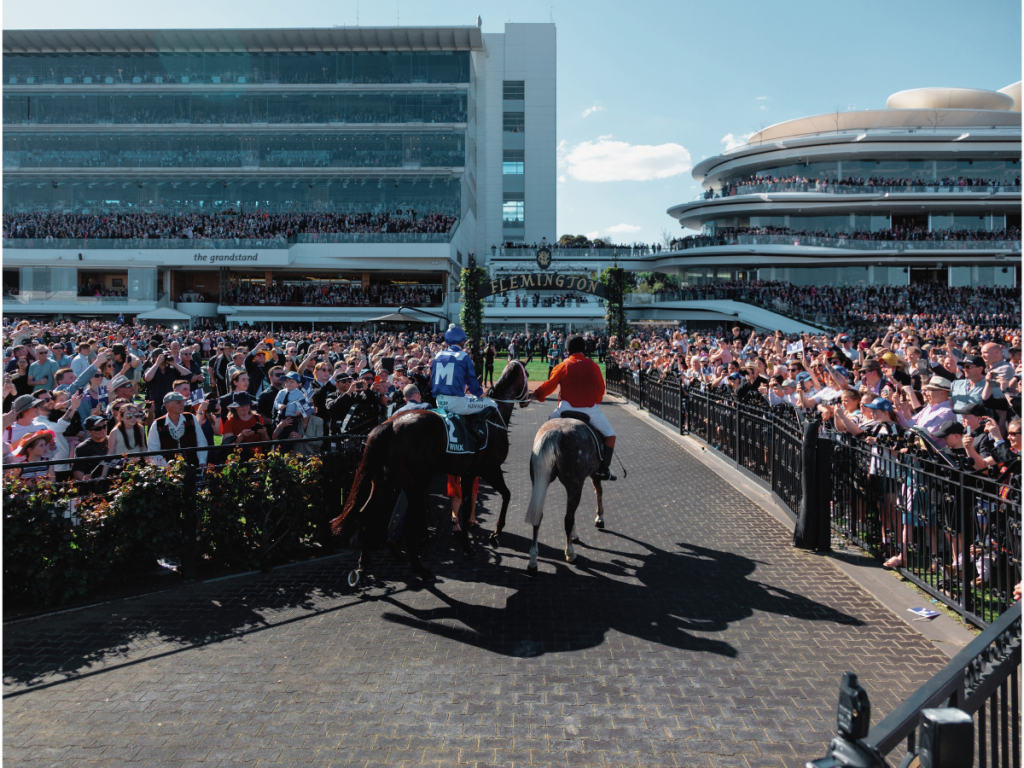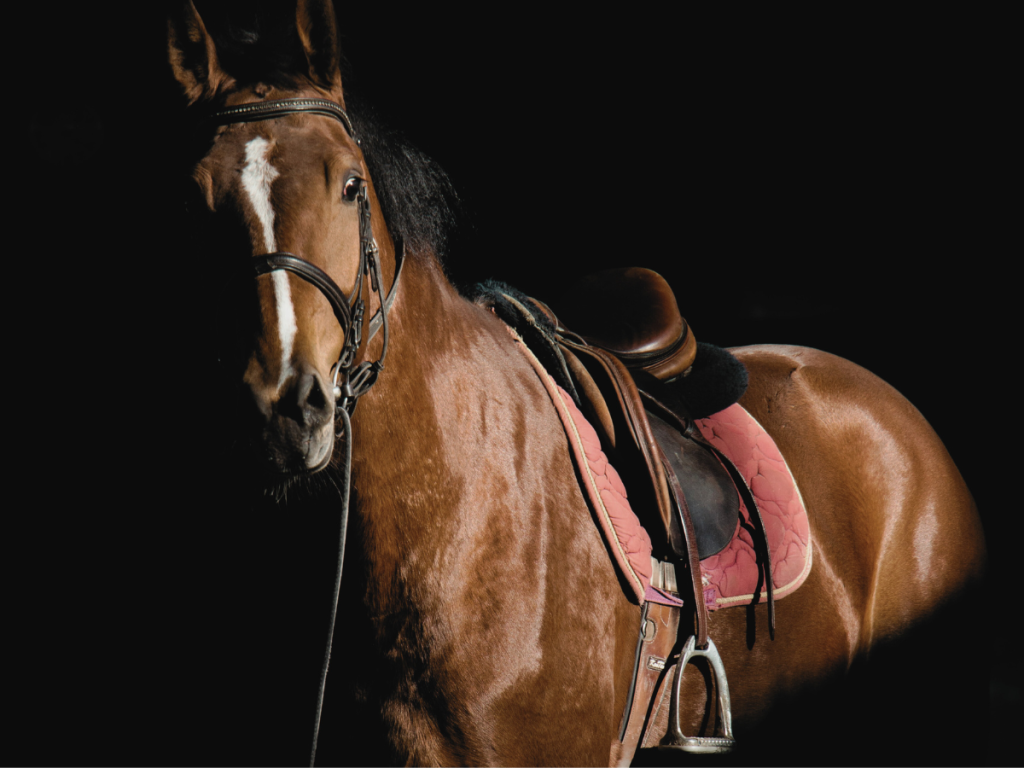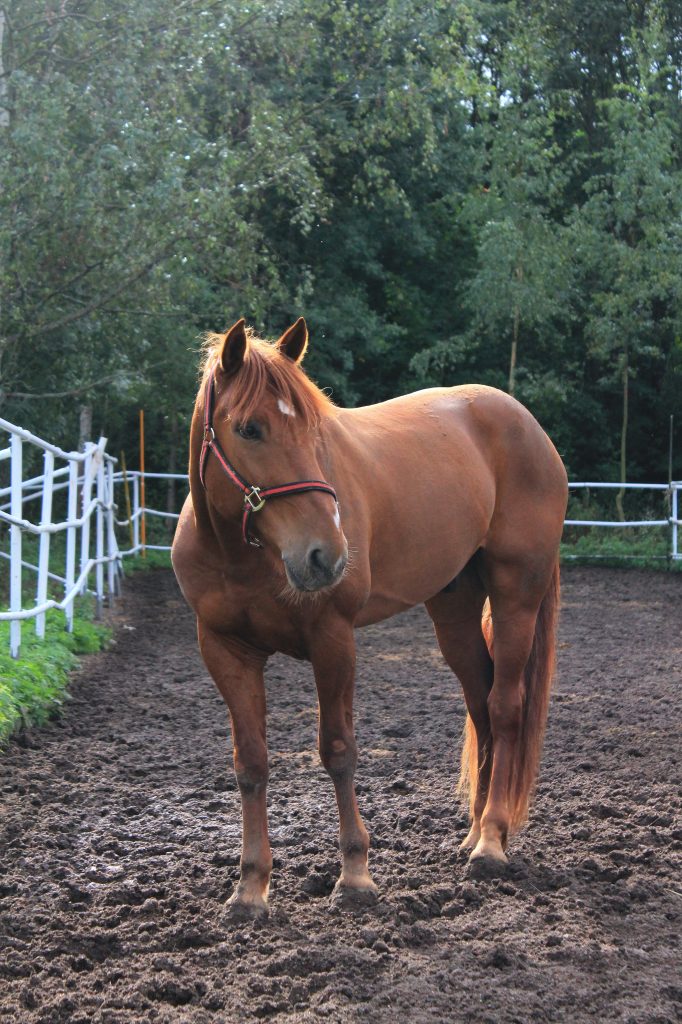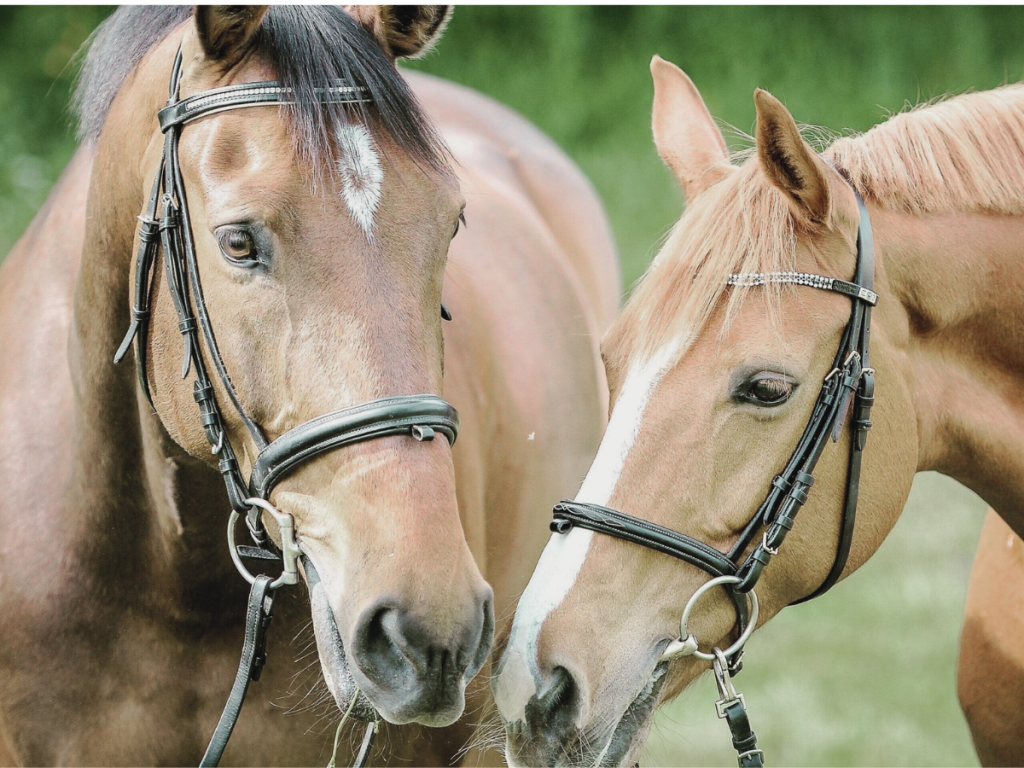Horse racing deaths and animal welfare concerns have led to more people than ever to boycott the Melbourne Cup.
And while many Australians will still be celebrating this coming Tuesday, it’s getting harder for many to ignore the many real issues surrounding the ‘race that stops the nation’.
Estimated reading time: 1 minute
The Melbourne Cup, while a celebrated Australian tradition, raises significant concerns regarding animal welfare.
The thrill of the race and the glamour of the event often overshadow the risks that the horses face.
Just a quick glance on the internet reveals many fun facts about the Melbourne Cup Festival:
- Tens of thousands of visitors to Flemington
- Large television viewing audiences
- Almost $500 million contributed to the Victorian economy
But it’s another much more sobering fact that we need to start paying closer attention to.
The injuries and deaths caused in this race are inevitable.
In fact, the odds of a horse dying in the Melbourne Cup can be as good as the odds of winning.

Horse racing deaths and cruelty claims make the Melbourne Cup the Russian Roulette for horses
“Surely, when the odds of death can be as good as the odds of winning, there is something fundamentally wrong with the competition.“
Russian Roulette is a potentially lethal game of chance.
It’s where a player puts one round into a revolver before placing it against their head and pulling the trigger.
There is a one in six chance that the live round will be in the firing position.
While it might sound extreme to liken the Melbourne Cup to Russian Roulette, the statistics paint a much clearer picture.
The game of Russian Roulette is a metaphorical term to describe actions that have a high risk of danger.
It’s a game where the stakes are a matter of life and death or have very serious consequences.
And, every November in Melbourne, up to 24 horses enter a competition that amounts to much the same thing.

The underlying problem with the Melbourne Cup
Between 2013 and 2018 the Melbourne Cup awarded six winner’s trophies.
In that same period, six horses died as a direct result of their participation in the race.
Put simply, the same number of horses won the race as those who lost their lives running it.
The truth is the Melbourne Cup kills, and these are not random deaths (not forgetting all the injuries).
Six horses in six years is a pattern that reflects the underlying structure of the competition.
So, surely, when the odds of death can be as good as the odds of winning, there is something fundamentally wrong with the competition.
We have all heard the expression “flogging a dead horse”, and we know it means that an activity is futile.
But what does it really mean? Close to $500 million to the Victorian economy.
It means a society financially richer but ethically poorer.

Animal welfare advocates urge Aussie’s to not support the Cup
Four Paws’ Australia says that while the race itself is short – three minutes and 20 seconds – there is an insurmountable level of suffering.
Media reports and investigations in recent years have led to more awareness of the suffering of racehorses.
Four Paws’ credits this for the changing attitude towards the Melbourne Cup, with records showing attendance had been in a steady decline at the event prior to Covid.
We’ve also become more aware of the tactics and cruelty the racing industry uses.
In 2019, a former winning Melbourne Cup trainer was facing charges after engaging in abuse and torture in relation to three horses that ran the 2018 Cup.
Even more sobering is the ‘wastage’ in the industry, and the very real fact that many horses die at the end of their very short career.

Four Paws list the other reasons horses can suffer during races such as the Melbourne Cup.
Tongue ties During races, tongue ties immobilise a horse’s tongue; they can cause horses difficulty in swallowing, pain, distress and cuts to the tongue.
Bleeding of the lungs Bleeding of the lungs is prevalent in racing thoroughbreds. This is because strenuous exercise in horses, such as racing, causes burst capillaries, which in turn leads to blood in the lungs and airways.
Age-related injuries While horses aged three+ can run the Melbourne Cup, horses don’t reach skeletal maturity until aged five. Due to their young age, the horses risk racing injuries such as ruptured ligaments, fractures, and musculoskeletal trauma.
Whips Horses can be whipped up to five times prior to the final 100 metres, and an unlimited number of times in the last 100 metres, at the discretion of the rider. A recent study by researchers at the University of Sydney found that when whipped, horses feel the same amount of pain as a human would and, in recent years, several jockeys have been fined for exceeding whipping limits during the Melbourne Cup.
Will you be attending a Nup to the Cup event?
Nup to the Cup events are gatherings and activities organised as a form of protest against the Melbourne Cup horse race.
Animal welfare organisation World Animal Protection says the events are a great way to show there can be entertainment and glamour without exploiting animals.
The events aim to raise awareness about animal welfare concerns and the ethical issues surrounding the racing industry.
Attendees of Nup to the Cup often engage in alternative celebrations that exclude horse racing, such as cruelty-free picnics, fashion parades that promote sustainable and ethical fashion choices, and fundraising events for animal welfare organisations.
These events serve as a peaceful statement against animal exploitation and a call for change in the treatment of racehorses.


COMMENT ( 1 )